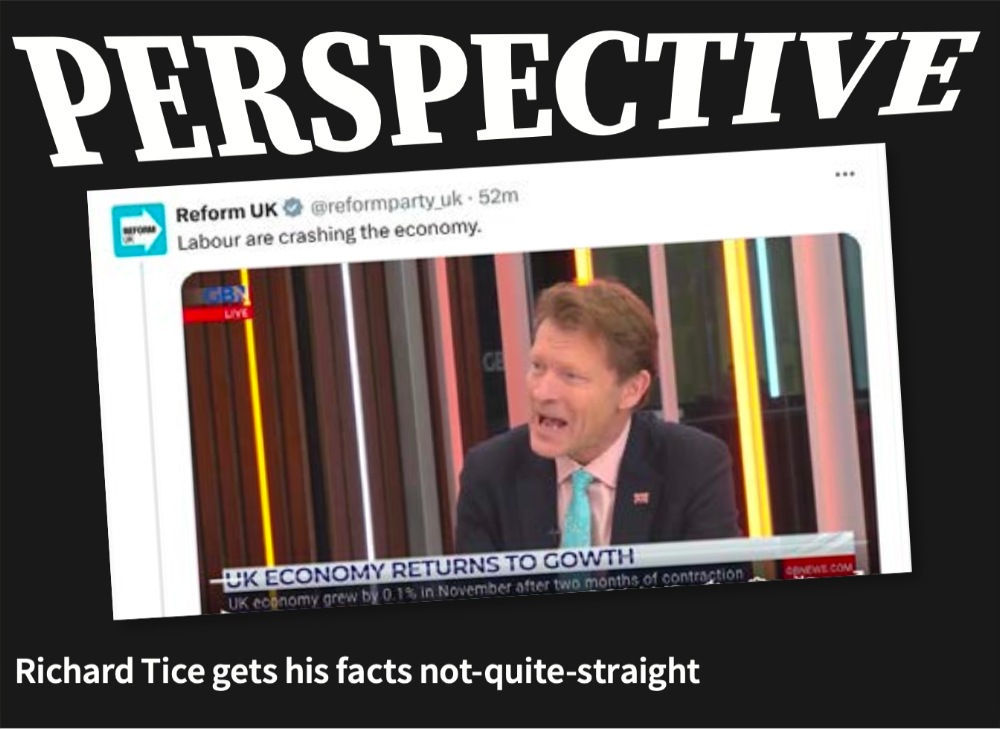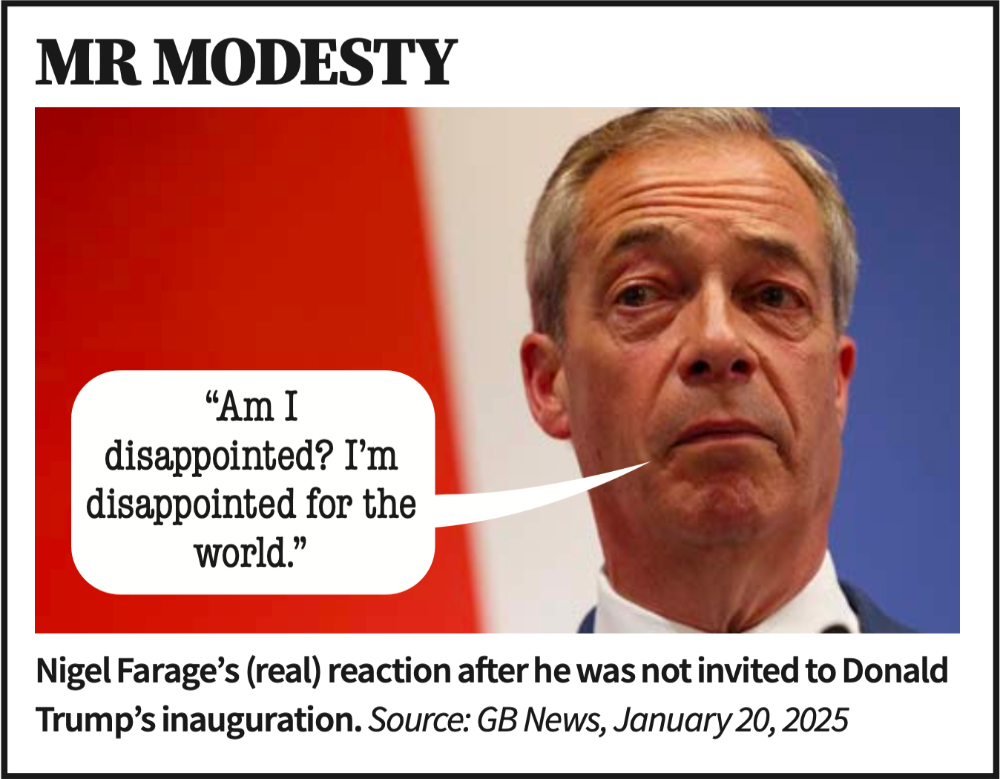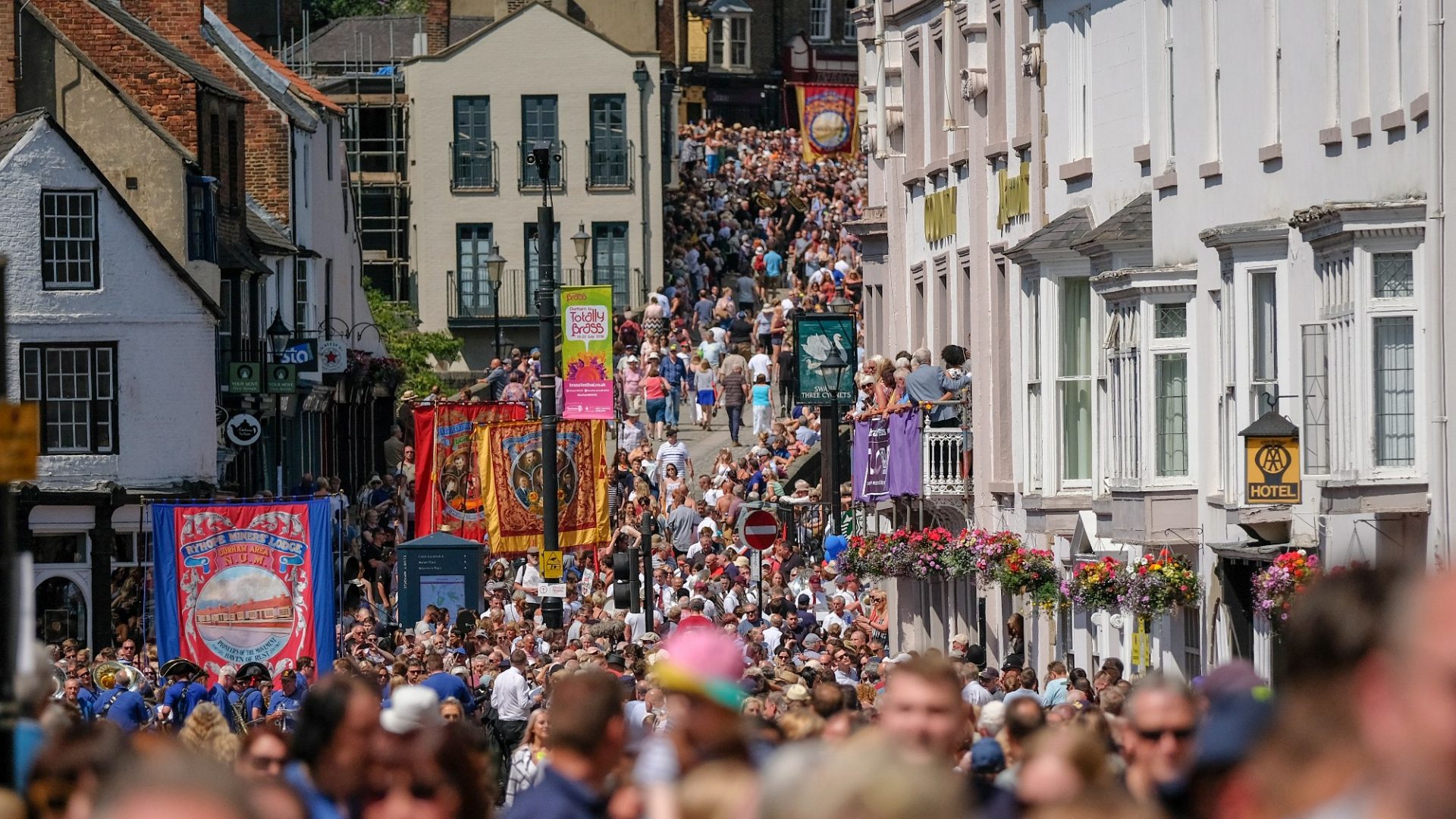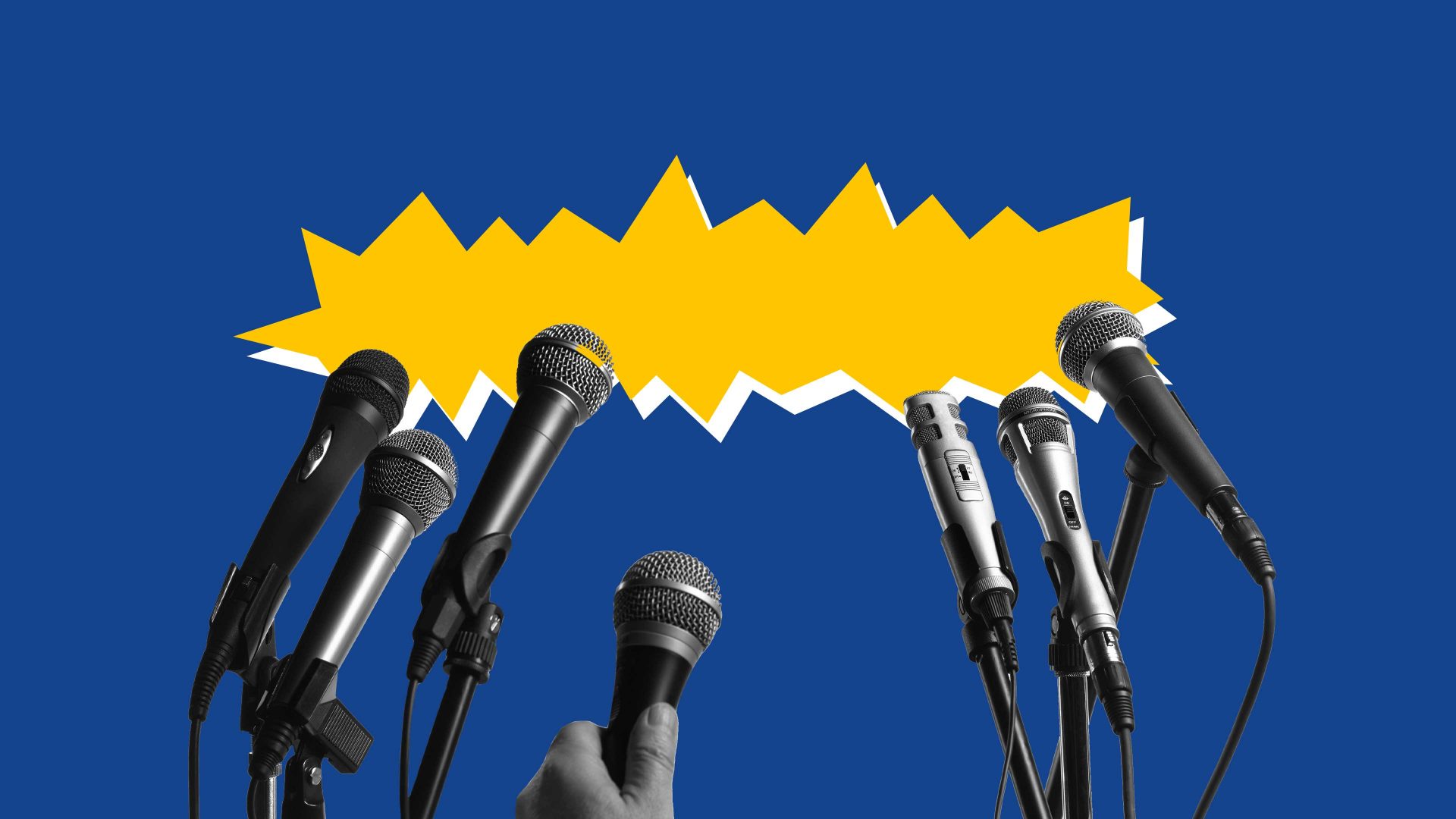I live in County Durham, in the North East. What Peter Hyman has to say in “How to beat populism” (TNE #420) about the alienation of ordinary people from the political elites in London is the view of an increasing number of people here.
We lost most of our income-generating industries in the 1970s and 80s, and since then have struggled to attract new industries and investment. Nissan is a rare success story.
I come from a long liberal tradition so Reform does nothing for me. But I sense the strength of local opinion they could attract and why. People need not only hope their situation will get better. They need to see action to show them that change WILL actually happen this time, and their situation will improve. Decades of neglect must be seen to be a thing of the past.
The populists are good at identifying scapegoats – immigrants, Brussels bureaucrats, elites, people who are “woke”, whatever that means. Yes, they might be a disaster in government, but do we REALLY want disaster just to prove they are wrong?
We need government to lead, to inspire and to give people the hope that they hear their concerns and they will act on them. Ditch the management-speak. Talk in language that ordinary folk use. And actually go and listen and learn.
We need to change the way we do politics, and there is no time to lose. Yes, it is time to wake up and smell the coffee. Let us hope it is not too late.
David Rolfe
This is the first article I have read that gets to the core of one element in the rise of populism: looking down on others.
I think the nail in the Democrat coffin at the recent presidential election might well have been Biden equating Trump voters with rubbish: who would vote for a party that comes across as not respecting them?
Anna Barnett
“How to beat populism” was a refreshing assessment that resonates with my current thinking: the way we do politics, education, economics, migration, business and so on is no longer fit for purpose.
In a democracy public opinion is sovereign; public opinion needs to be properly informed with a knowledge of balance; and to create a knowledge of balance we need to listen to each other.
We should go further and ask ourselves about our own individual purpose: “why are we doing this?” All of us who have a social and fair conscience, who simply care, should stand up and call out “the emperor has no clothes on” more often. This requires courage and leadership – our own courage, our own leadership.
Robert Roesch-Iles
I agree with much of what Peter Hyman says – the “liberal” left has been sleepwalking into the populists’ rise. However, I do not necessarily agree with the idea of a patriotic claiming of our national story. If we do, we must also acknowledge there is blood on our hands and that many of the problems in the world were historically caused by our interference and inability to understand the cultures we manipulated.
Adam Primhak
Peter Hyman’s article falls a long way short of offering any valid agenda for fighting back against the transatlantic right. The article invokes the tropes of old-fashioned patriotism and social respect, but bypasses any in-depth discussion of Brexit and of our FPTP voting system.
The net result is that his would-be allies are simply left in a no-man’s land of low morale and self-reproach.
Robin Charleston

Carrying a tune
Re: Alastair’s Campbell’s Diary. I’m a librarian working in central Bedfordshire. Twice a week we offer Rhyme Time sessions for pre-school children. One of the songs we enjoy singing is called Alice the Camel.
Now, when you sing those words, they sound very much like “Alastair Campbell”. Your esteemed editor-at-large is thus building up name recognition with the under-fives in Bedfordshire and wherever else the song is sung.
Mark Stubbs
Sandy, Bedfordshire
Self beliefs
Re: Rats in a Sack on Isabel Oakeshott and misrepresentation of a video made by children for refugees from Ukraine (TNE #420). As far as Oakeshott is concerned it is job done; the hare is running, no matter what commenters or community notes on social media might say. In a world where people now believe what they want to believe, fact-checking or community notes are of zero value.
Guy Masters
Life after death
Re: Nigel Warburton on near-death experiences (TNE #420). Assuming that my “mind” is the (self) conscious “me” awake and writing this letter today, then the following logic seems to exclude its existence beyond death:
My mind changes in lockstep with the changes in my physical brain from foetus to decline in old age, and deteriorates with physical brain injury and disease. It changes radically under chemical influence.
How then would it not die in lockstep with the death of the brain? In any case, which version of “me” would the survivor be? If I died suffering from Alzheimer’s, would my mind persist in eternal Alzheimer’s or miraculously revert to some peak state achieved during life, and how would that state be selected?
Finally, there is the obvious fact that the conscious me is not even continuously maintained during life for more than about 16 hours in any 24, let alone after death?
Peter Basford
Herts
Feudal society
In his Critical Mass column (TNE #420), Philip Ball has some interesting things to say in relation to quantum computing. While it is impossible to go into too much detail in such a short piece, no conclusion is drawn from what such a revolution would mean sociologically.
Michio Kaku in his book Quantum Supremacy is hugely optimistic about what the future holds with such computing capacity at our service, whereas Calum Chace in his book The Economic Singularity warns us of the possible development of a feudal society where 10-20% of the population have reaped the riches and the other 80-90% of us have to rely on their philanthropy; much like a feudal society in medieval times.
This latter is how I envisage the incoming Trump administration: feudal.
Alan Craw
Reading is a saviour
Re: Musk, the media, and disinformation (James Ball, TNE #419). One thing people can do to help themselves and democracy is read newspapers. TNE, the i Paper, and the FT are for me the best of the nationals. If you have one, also read your local paper. If you can’t afford to pay, then read them in your local library.
Good newspapers are curated, objective and have legally liable “content”. I am sick of seeing people holding up their wretched smartphones and stating “Google says [insert toxic BS here]” like they were an oracle.
In their book The Great Conversation, Robert Maynard Hutchins and Mortimer J Adler recognised propaganda as “one of the greatest dangers to democracy”. And also that: “The reiteration of slogans, the distortion of the news, the great storm of propaganda that beats upon the citizen 24 hours a day all his life long mean either that democracy must fall a prey to the loudest and most persistent propagandists or that the people must save themselves by strengthening their minds so that they can appraise the issues for themselves.”
Save yourself: read good newspapers (and books and magazines too). If you don’t agree with them, that’s why they have a letters page.
Will Goble
Rayleigh, Essex
Set the record straight
Your article “The agony and the ecstasy” (TNE #419) by Peter Jones about Keith Jarrett’s Köln Concert included an allegation that producer Manfred Eicher had threatened to sue makers of a proposed documentary about this live recording. This is incorrect. We have since shared the brief but cordial communication that transpired, via email, between Mr Eicher and the film-makers with the New European, and are pleased to note that at least the online version of the story has now been amended.
Christian Stolberg
Press officer, ECM Records
I discovered the Köln Concert in the 1980s while living in Germany. I read a book (Einsam, Zweisam, Dreisam) where the protagonist loved listening to it. I went out and bought the CD, and was blown away.
It is best listened to in the dark, no talking or distractions, maybe with a glass of something nice. The opening notes still send shivers down my spine.
Neil Townsend
A meaty argument
Josh Barrie is entitled to bash vegans and Veganuary (TNE #419), but if he wishes to do so then engage with the facts. I’d recommend Ed Winters’ excellent This is Vegan Propaganda.
It would certainly make a huge difference if everyone participated in Veganuary and to label it as ludicrous or posturing is absurd. The logic of such an argument is that buying an electric car, installing solar panels or making fewer trips by plane are equally pointless posturing, and by extension, campaigning for closer ties with Europe, too.
I agree that processed food is bad for us and that corporations jump on the Veganuary bandwagon, but don’t these same corporations jump on the ethical meat bandwagon, too, with “Freedom Food” etc to make meat-eaters feel less guilty? Josh produces no evidence or facts for why regenerative farming may save the planet, and certainly no reasons as to why this would be more effective than going vegan.
The bottom line is that producing meat is very inefficient in terms of the resources required, and it is cruel, and cows still fart a lot whether they are factory farmed or roam free.
Steve Penny
South Wales
River talk
In “A River Runs Through It”, Peter Trudgill’s latest informative piece about language (TNE #419), he refers to “places around the coastline … with names ending in the suffix -mouth” which “stand at the mouth of a river”.
Peter lists Cockermouth and he’s right about the river, but not about the coast, as Cockermouth is 10km inland. Here “mouth” does indeed refer to the River Cocker, but its mouth opens into the River Derwent.
It was because of this confluence, right in the middle of Cockermouth, that the town suffered such a huge flood in November 2009, when both rivers were grossly swollen. There are plaques on the walls of many buildings to show the height, 2.5 metres, the waters reached.
Ann Lackie
Twin tales
I don’t recollect there being any reporting as to how “town-twinning” has fared since Brexit. Has this vibrant and widespread commitment to Europe died a death? Could there be occasional reporting on how this great belief in our love of Europe has thrived, perished or put on hold?
David Handley
Gargrave, Yorkshire

BELOW THE LINE
Comments, conversation and correspondence from our online subscribers
Re: Reader letters on Labour and Brexit (TNE #420). Sir Keir needs to understand that a lot of us voted Labour last year in spite of his Brexit stance, not because of it. We simply wanted to banish the Tories to the outer darkness. Now that’s accomplished, he can only count on us again if his next manifesto includes commitments to negotiate realistically on the single market (including FoM) and customs union, heading towards eventual full membership. Of course that will take years, but we need to see him moving in the right direction!
Tony Jones
The EU “resetters” are indulging in the same fantasy and peddling the same myth as the Brexiters. The Brexiters clung to the delusion that the UK could negotiate total access to the single market without taking EU rules, accepting the four freedoms or agreeing to European Court oversight. Boris Johnson believed he could browbeat the EU, and failed spectacularly when it stood firm. The only change Labour is contemplating is to the mood music, and being nice won’t make any difference. The choice is stark. It is rejoin or bust.
Mark Grahame
Can I suggest that the pro-Europe organisations come together and support a UK-wide leaflet drop explaining the damage Brexit has done to our country? This would reignite a national discussion and create massive media coverage. There are thousands of us out here who would volunteer to distribute these. The current climate makes it more and more important for us to get on and attack the people and organisations who have done so much damage to our country.
Steve Roach
Re: “’Twas the night before Romjul” by Peter Trudgill (TNE #420). In Trinidad, and possibly throughout the British West Indies, December 31 is still referred to as “Old Year’s Night”.
Nicholas Kerr
Re: “Bravery and a bruised ego on the Austrian mountains” by Abigail King (Carousel, TNE #420). I started late as a skier and instantly fell in love. The only advice I would give anyone is never let friends or family teach you! And the best phrase to describe it when you click is that it is simply dancing with God.
Christopher Harrison
JOIN THE CONVERSATION
Subscribe and download our free new app to comment and chat with our writers



